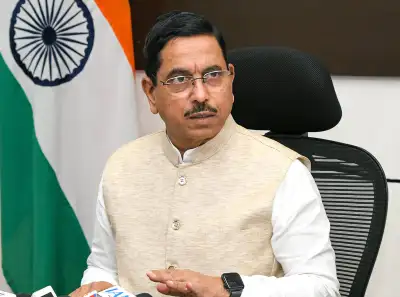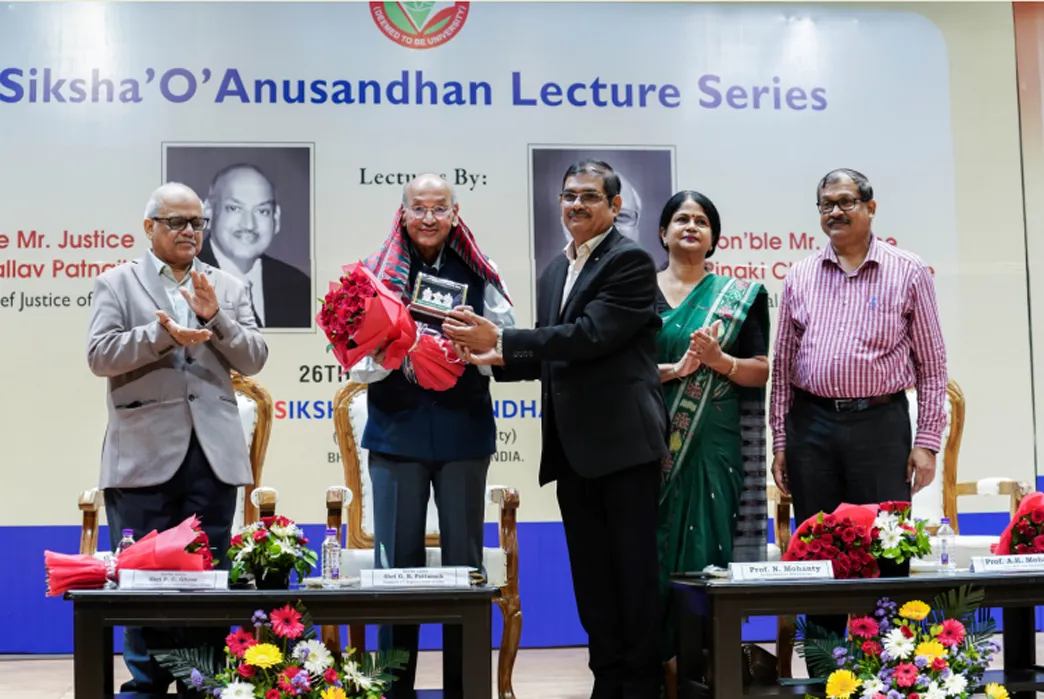

Bhubaneswar, Sept. 26: Though India is progressing towards becoming a developed country it still needs to address a plethora of challenges, Justice Gopal Ballav Patnaik, former Chief Justice of India, said on Friday.
The country needs to urgently focus on creation of more employment and reinforcing democratic values while embracing digital technology, the former CJI said while delivering the Siksha ‘O’ Anusandhan Lecture at the SOA Deemed to be University here.
“The question is not whether India can become a developed country, the real question is will we rise to the occasion?” Justice Patnaik said.While the country’s infrastructure was expanding, digital technology had empowered millions of people and scientific achievements were reaching new heights, there was a need to look at the larger picture, he said.
Stating that the dream of India becoming an ‘advanced’ or ‘developed’ country in a few years is an inspiring vision, he said the answer to India’s future did not lay only in parliament or policy but in its class rooms, laboratories, court rooms, hospitals, villages and start-ups. Justice Pinaki Chandra Ghose, former judge of the Supreme Court of India and the country’s first Lok Pal, also addressed the gathering. Prof. Pradipta Kumar Nanda, Vice-Chancellor of SOA, presided over the program.
Speaking on the subject ‘Students as Nation Builder—The Power of Young Mind in Shaping the Future’, Justice Patnaik said education was not about marks, degrees or placements. It was about developing critical thinking in students, making them understand their responsibilities and inculcating in them the spirit to stand up for what is right, he said.
“It is your class room where nation building begins. A nation is not built by concrete, it is built by character,” he told the students.
India, he said, does not need toppers with no values. But it needs honest bureaucrats, compassionate doctors, ethical lawyers, courageous journalists, responsible scientists and sincere and honest policy makers.
“As a student you must develop a character so strong that it cannot be altered during your professional career,” Justice Patnaik said adding “the minimum that is required is to be respectful towards your teachers and elders.”
Each and every citizen of this great nation has a role to play for the country to make it really developed, Justice Patnaik said.
The former CJI also said the country’s democratic institutions like the press, the courts, the election system and parliament were under constant stress to uphold the aspirations of the people and ultimate mandate of the constitution. Addressing students of law who were present in the auditorium, Justice Patnaik said they should remember that law, for them, was not just a profession but was a responsibility to protect the rights and freedom and uphold justice and fairness.
“As students of law, your responsibility is to know the pulse of the society, become a voice for the voiceless and defend the constitution,” he said adding “a good lawyer knows the law, a great lawyer knows justice.” Mr. Justice Patnaik also praised Siksha ‘O’ Anusandhan for becoming a ‘symbol of excellence’ saying the credit for the same should go to the visionary leadership of its founder Prof. (Dr.) Manojranjan Nayak whose dedication and foresight laid the foundation of this remarkable institution.
Justice Ghose spoke on the basic structure of the Indian Constitution and its role in protecting core constitutional principles and fundamental rights.
The basic structure doctrine was established by the Supreme Court of India in the landmark Kesavananda Bharati case of 1973 which accepted the supremacy of the Constitution, the rule of law, democracy, secularism and independence of the judiciary, he said.
The largest constitutional bench comprising 13 judges which heard the case had laid down that constitutional amendments were open to scrutiny but could not alter the core features ensuring protection of fundamental rights, he said.
“Some people may raise questions but we have to respect it,” Justice Ghose said.
Prof. (Dr.) Neeta Mohanty, Pro-Vice Chancellor, introduced the two former judges of the apex court while Prof. Jyoti Ranjan Das, Dean (Students’ Welfare) conducted the program. Prof. Ayasakanta Mohanty, Dean, Institute of Business and Computer Studies (IBCS), proposed the vote of thanks.